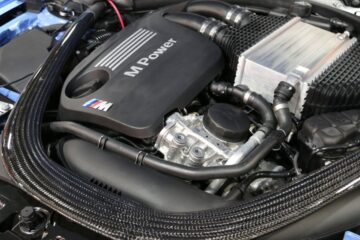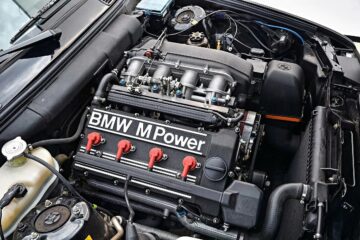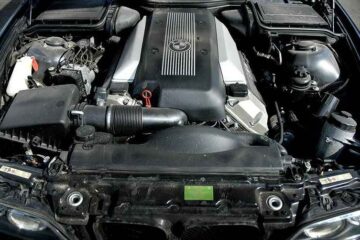The N57S is an outstanding engine for the BMW 3-series and beyond family cars. It runs exclusively on diesel fuel. It has outstanding technical characteristics and is a rare combination of extremely high power and at the same time economical fuel consumption. It is almost impossible to find the exact figure, because it all depends on where the driver predominantly uses his car. If you use a mixed style of driving, then for 100 kilometers you will spend about 6-7 liters. It is impossible not to agree that these are very rare indicators, especially for an engine from such a power category. If you are interested in knowing how much oil can be used up after a thousand kilometers, then here the data are very vague and depend on many factors.
As for the main parameters, the described power unit has a working volume of 3.0 liters. To be more precise, it is 2933 cubic centimeters. The power indicator is simply amazing – here it is equal to 381 hp.
In its form, the engine described is an inline engine and can offer you a set of six cylinders, as well as 24 valves (there are 4 valves per cylinder).
N57S engine specifications
| Power, hp. | 381 |
| Fuel type | Diesel fuel |
| Volume, cm*3 | 2933 |
| Maximum torque, N*m (kg*m) at rpm. | 740 (75) / 3000 |
| Fuel consumption, l/100 km | 7.7 |
| Engine type | In-line, 6-cylinder |
| CO2 emission, g/km | 199 |
| Cylinder diameter, mm | 84 |
| Number of valves per cylinder | 4 |
| Maximum power, hp (kW) at rpm. | 381 (280) / 4400 |
| Blower | Turbine |
| Compression ratio | 16.5 |
| Piston stroke, mm | 90 |
Advantages
When creating the N57S engine for BMW, the manufacturers took the N57TU engine as a basis and significantly improved many of its characteristics. Below we will try to describe in maximum detail all the innovations that the described power unit was able to surprise the public with:
- The engine has an updated block crankcase, offering you a threaded connection between the cylindrical block head and the crankshaft bearings. This is accomplished by means of special studs with threads along the entire length.
- The cooling system in the cylinder block head has been improved.
- The cylinder head has been redesigned. A larger valve diameter can be noted.
- Availability of upgraded pistons with bronze bushings.
- As for the belt drive, you may notice the presence of a new damper that is combined with the 8-speed transmission.
- The oil delivery system has been modernized and is now a redesigned and adapted system.
- A revised intake system has been introduced with three turbocharged OHVs, as well as new flaps that allow the supercharger pressure to be controlled in all possible states of operation.
- The exhaust system has been significantly improved to meet the requirements of the EURO 6 environmental regulations.
- The fuel treatment system has been improved. The injectors are now ready for higher pressures.
- In general, the electrical equipment of the power unit has been improved, which is expressed in the presence of new inputs and outputs for connecting sensors and actuators of the motor.
Disadvantages
The described motor is rightly considered very reliable. This is evidenced not only by official data, but also by the experience of many car owners who have been convinced of the truth of this statement in practice. If you have any problems, they will be insignificant. At the same time, we do not recommend “self-medication” of the motor, because without proper knowledge of the anatomy of power units (for example, if you do not know how to remove the manifold N57S on X5 40DX) you can only harm the overall system, which will entail the emergence of new much less pleasant problems, which may further lead to the failure of parts that will be very costly to replace in terms of money.
Chip tuning
Due to the fact that the described engine is already extremely powerful, it makes little sense to use chip tuning methods here. But if you do not know any limits, then for sure in specialized centers you will be able to add about 20-30 “horses” to the existing figure.



0 Comments